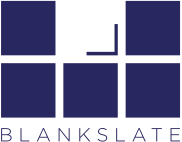Changes are coming this year to British Columbia and how employers treat equal pay. Legislation is moving toward increased pay transparency, a typically opaque area.
Here’s What we know:
Come November 1, 2023; all employers must include wage or salary ranges on all publicly advertised jobs. Employers will no longer be able to ask for pay history information from candidates as well.
On top of this, employers will be required to post reports on their gender pay gap. To give employers time to put everything in order, a slow rollout of this will be implemented as listed,
- November 1, 2023: BC Public Service Agency and Crown corporations with more than 1,000 employees.
- November 1, 2024: All employers with 1,000 employees or more.
- November 1, 2025: All employers with 300 employees or more.
- November 1, 2026: All employers with 50 employees or more.
The intention behind these changes is to close the gender pay gap in B.C.
While we don’t yet know how the reporting process will work, we expect more information by November at the latest when the first round takes place.
Why does this matter?
This change has the potential to cause a lot of uncomfortable conversations if steps are not taken to ensure fair compensation ahead of time. If a role is posted with a salary range 10k-15k more than a current employee is making in the same role, points of contention will arise quickly internally.
What can we do?
There are a couple of easy steps you can take today to set your business up for success in November.
Understand your compensation structure and state.
BLANKSLATE Partners recommend conducting a thorough compensation audit of all staff before November. Doing a thorough review of your current compensation levels throughout the company and comparing it with current market value can be a great way to ensure you are paying your employees fairly and set the employer up for success should any questions come up.
Definite your compensation Philosophy.
Having a compensation philosophy is important for ensuring that compensation decisions are fair, transparent, and aligned with the company’s goals and values. It helps ensure equal pay practices. It can also help to attract and retain top talent and enhance employee satisfaction and engagement.
Define your Equality Statement
An equity statement is a statement that outlines an organization’s commitment to promoting diversity, equity, and inclusion. The purpose of an equity statement is to communicate the organization’s values and commitment to creating an inclusive and equitable workplace.
An equity statement typically includes language that acknowledges the existence of systemic barriers and discrimination and commits to taking action to address these issues. It may also include specific goals or initiatives related to equal pay, diversity, equity, and inclusion, such as increasing the representation of underrepresented groups, providing training and education, or creating a more inclusive culture.
